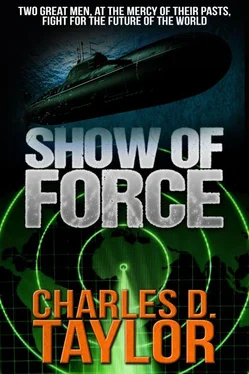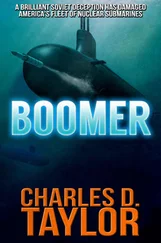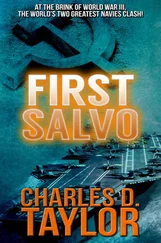"That minor fire, as they call it in international politics, was a picture-perfect undercover job that negated all communications and crypto equipment — incendiary devices so small that we never knew they were brought in. Our experts here say it will be another four to six days before they can even have a proper jury rig on some of the units, but that's only if we have parts available here. And since they plan to cut us off from everything for a period, this is the only contact we'll have with you."
"Sounds like intelligence screwed up badly, Bob."
"Our biggest problem is that we don't know how many mistakes they've made. The ambassador, per an agreement with me earlier this evening, is telling our people only as much as we want them to know since we obviously have a major security problem. Major Hattan, who took over the detachment when Hamlet disappeared, is going over our background investigations now to see if we can find some pattern in last year's Wrings, or anything that will at least give us something to go on. By morning we should literally be under siege, and then we'll have no bargaining power."
"Just a moment, Bob. Secretary Jasperson is ready to be patched in from the White House. If the ambassador is right there, I'd like to have them talk first. The President, to be polite, is very shaken now."
Collier looked at Simpson. Both of them knew the strain Jasperson was under now with the President. International confrontation was not part of the constitution of this small-town boy who had achieved the American dream by selling domestic issues to people. Jasperson was the President's mouthpiece and at this juncture was probably making all of the decisions for his President.
"I'm right here, Admiral Carter," replied the ambassador. "I am aware of everything with the exception of some military information that I, for some reason, have not been made privy to." Collier noted that the ambassador's furrowed brows were probably no more furrowed than Sam Carter's at that statement. "Please patch me in to Secretary Jasperson,"
A quiet voice came back over the loudspeaker, "This is Jasperson. Am I speaking to Ambassador Simpson?"
"This is Simpson, Mr. Secretary. This is the.only method I have available to communicate with you securely, and I'll make it as short as possible. You have already learned from the Russian embassy that a small fire disrupted our communications network for a while. Actually, it was an undercover job, an excellent one. Some very sophisticated incendiary devices were strategically placed to create destructive fires on the eighth floor. Quite obviously, our security missed something, and I suggest you have your people begin to comb all your files on us to see if they can turn up anything unusual. If they can infiltrate this embassy, they must be in every one we have. Secondly, I can assure you we will not have any other method of communications other than transfer of routine information for at least four days, and I doubt it will even be possible then. Finally, we are virtually prisoners within the confines of this building, and I doubt we will have any opportunity to assist you over the next twenty-four to thirty-six hours, when you're going to need it most. Admiral Collier has requested military permission to bring me up to date on some apparently highly classified weapons that are involved with this mess. While I don't want to belabor the point now, I think I should have been told previously what was developing, since I may have to negotiate directly with the Soviet leaders."
There was an embarrassing silence before Jasperson came back. "I assure you there was nothing personal involved in any decision to withhold information." A pause, then, "Admiral Collier, you may take my word for it that you can tell Ambassador Simpson everything he needs to know." Another pause. Then, using his old friend's first name, Jasperson said "Jack, I know you're In a tight situation and, if there is any fault, it has been right here. You know about Islas Piedras and that's the crux of the situation. If we could have completed it before all this started, then everyone with a need to know would have been briefed. As it stands now, we made a judgment error. The Russians got the upper hand on us, and it might have been worse if we hadn't stopped that damn satellite. As it was, we were using an untested weapon and we didn't even know if that would work.
"But those things aside, I suspect that we are going to need your help very badly after the Chairman's speech. You should work very closely with Admiral Collier, and I want to instruct both of you as a team."
"I'm right here with the ambassador, Mr. Secretary. Please go ahead," said Collier.
"Bob Collier speaks just about perfect Russian, Jack. Since you seem to have a problem with security risks, I want Collier to act as your interpreter. Anywhere you go, he goes, and vice versa. I think the two of you will be safe, since the Russians aren't exactly sure what we have at Islas Piedras. As long as they believe they've put us out of touch, act just the opposite. Let's confuse them by acting as if we were in constant touch. As long as their information is inaccurate, you have a certain advantage. We know they'll stay in the dark for a while, although one of our agents has assured us that a new satellite will be launched within days to replace the one we neutralized. When that becomes a malfunction, I think they'll know what advantages we have on that score. However, we want to try to solve our problems with diplomacy, if possible. They know that you're handpicked by me, and Admiral Collier is a well-known student of international affairs. I want to read a list of items for you to discuss with them that I have just gone over with the President. You may tell them that the President of the United States stands firm on the following points…"
Silence! The ambassador turned halfway to Collier. "Bob, what happened?" Silence. "Can you get him back? We have more time before they're out of range."
The Admiral looked at his men, one at a time. The looks on their faces were all that he required. "Mr. Ambassador, we're on our own now. I'm sure if we had any other means of communications with Washington, we'd learn shortly that our satellite was just destroyed. If it's any comfort to you, it was likely a missile. Destruction of that type will be obvious to a number of countries, and I'm sure the U.S. will learn about this provocation in the next half hour.
"In the meantime, sir, we have no contact with Washington, and I doubt we will have any for some time. As a matter of fact, if you go to your quarters and look out in the square, I'll bet you'll see there are even more guards than before."
In the aura of the dim street lights on the Tschaikowskistrasse, Ambassador Simpson saw not only more people, but they now wore the uniforms of the Red Army.
The office was austere, much like the man who sat behind the large wooden desk. The desk and the comfortable chair he sat in were the only items in the room that signified his authority. There was a drab rug of a nondescript brownish color on the floor, and there were no curtains on the windows, only the folding wooden blinds, so familiar in Russia, that slid on squeaky metal tracks to cut out a too-bright sun. The wails and ceiling were of a pale beige color, and minute cracks showed in the plaster, which needed renewing. The only decorations were on the wall opposite the desk where he could look up at them from his work. Behind him were the normal charts and scrolls that signified various awards he had won in his long naval career. They were there for effect, for he wanted visitors to see them when he talked. There were two smallish windows to his right. He leaned back in his chair to look out at the lightly falling snow in the Kremlin yard. The air was still bright with the light crystal snow that fell this time of year from the fluffy clouds. They skittered across the sun, the one that never rose very high in the wintry Moscow sky. He pushed back from his desk, putting his hands behind his bald head. What little hair he had left provided a gray fringe around the base of his skull. This made his ears look bigger than they were, and his jowls, not large for a man nearly seventy years old, were also emphasized. He had a big head, wide, with a pronounced forehead and high Slavic cheekbones. To complete this tough-looking appearance, his eyes should have been a steely gray. But they were a soft brown instead. It might have been a handsome face, but the many hard years during the war, coupled with the sternness of a senior Russian military official, produced a perpetual downturn at the corners of his mouth.
Читать дальше












